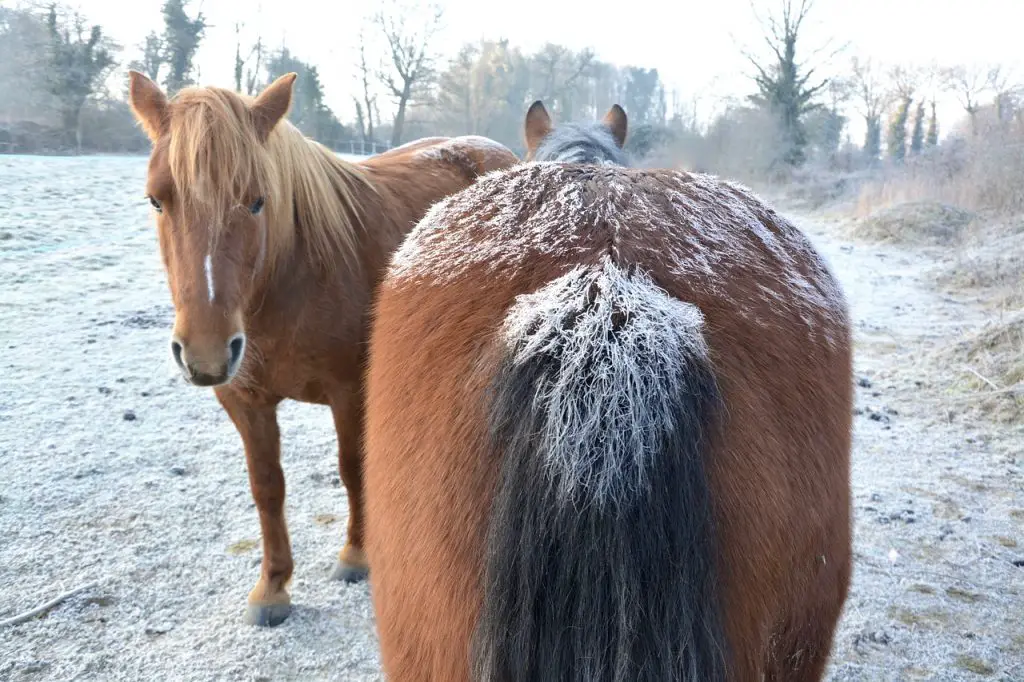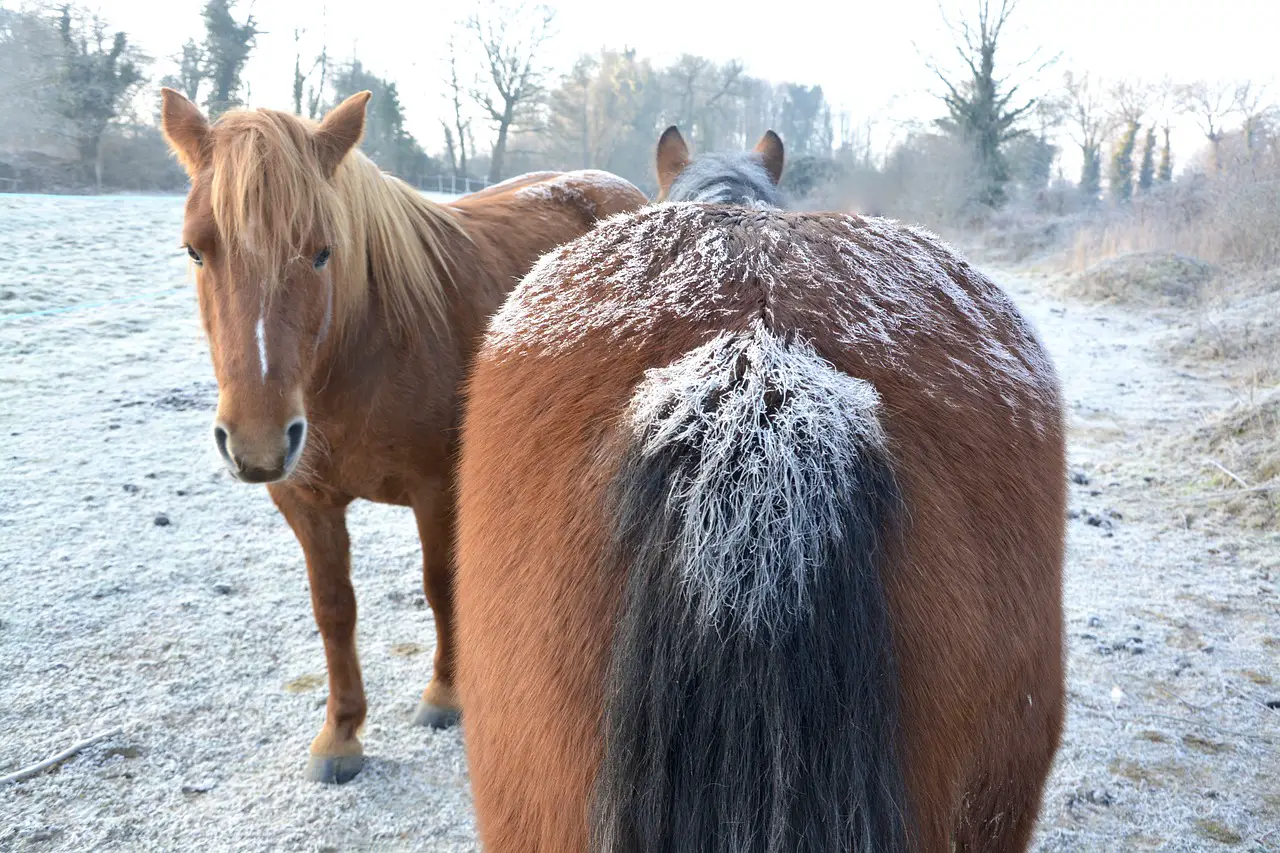Last Updated on March 15, 2022 by Allison Price
Cyathostomins, small redworms, are the most harmful parasitic worms found in horses. They can be identified and treated between December and February.
The larvae hibernate inside the gut wall during winter. They encyst (top photo) and reactivate as the weather warms up in spring. They then migrate out of the intestinal walls in large numbers and simultaneously, causing extensive intestinal wall damage. This mass emergence can lead to sudden weight loss, abnormal blood condition, diarrhoea and colic, as well as sudden death.
It is difficult to identify encysted small redworm symptoms. Worm egg counts aren’t able to distinguish the larval stage. Encysted worms are still immature and don’t produce eggs. Horses with a high encysted redworm burden can appear bloated or overweight.

Anthelmintics (or ‘de-wormers”) that target encysted redworm should be used during this time of the year to kill them in their dormant stages. Moxidectin, the only active ingredient that is licensed to treat encysted redworm in one dose, acts against the encysted stages of the parasites before they can emerge from their gut wall. The licensed treatment for encysted small redworm is a five-day course fenbendazole. However, there is widespread evidence that small redworms have developed resistance to the 5-day dose. It is advised to conduct a resistance test before you use it.
Blood test
The laboratory can offer a blood serology test to identify encysted small redworms. This can be combined with tapeworm testing in the autumn/winter. Your horse’s blood tests may indicate that a wormer is not necessary. This reduces the possibility of developing anthelmintic resistance. Your vet will determine the best treatment for your horse based on the type of worm found and the risk level.
Treatment
Winter treatment can be combined with worming to treat small redworms and all roundworms (including pinworms and all three types) . This may not be necessary if horses have had blood tests for encysted tapeworms or small redworms. This should be discussed with your vet individually for each horse.



